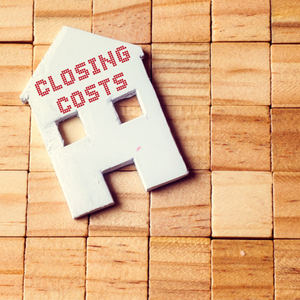
The costs of selling a home can be complicated, especially the closing costs in Seattle, WA. Knowing who pays what is essential for creating a budget and setting realistic expectations. This guide for sellers explains which closing costs you’ll typically need to cover and how to reduce them.
Understanding Seller Closing Costs in Seattle

Selling a home in Seattle involves various expenses, including seller closing costs. These costs encompass fees, taxes, and other charges necessary to complete the transaction.
Understanding whether sellers or buyers are responsible for these costs can be pivotal. This guide delves into the components of closing costs and examines who traditionally covers them, providing crucial insights for sellers in the Seattle area.
By grasping these nuances, sellers can better prepare for the financial aspects of the home sale, ensuring a smoother transaction process without unexpected surprises.
What Are Closing Costs?
Sellers cover closing costs when selling a home. Real estate transaction closing and deed security fees are included. Seattle sellers must know expenses to manage expectations and finances.
Seattle seller closing costs encompass several categories. Sellers’ highest closing cost is usually agent commissions. Commissions are usually 5%–6% of the home’s sale price. Seller and buyer agents split this fee to serve both parties. Seller closing costs are largely due to real estate professionals who facilitate the sale.
Sellers may pay title insurance to protect against legal defects and liens in addition to agent commissions. Sellers may contribute to this insurance, which buyers usually buy, if negotiations differ. Without legal issues, property transfers require clear titles.
Survey, recording, and administrative fees may affect seller closing costs. Each fee helps make the deal public and legal. Seattle sellers can estimate these fees to budget correctly and avoid closing surprises.
In competitive housing markets like Seattle, closing costs can be negotiated. Sellers and agents should split or reduce costs to improve their selling proposition. Prepare and understand these financial factors to maximize home sale proceeds.
Who Traditionally Covers Closing Costs?
In a traditional home sale, sellers and buyers pay closing costs, but the share varies. Seattle and other real estate markets have common closing fee practices. Sellers must understand these norms to strategize.
Closing costs usually fall on multiple parties. Agent commissions, a major closing cost, often fall on sellers. One of the biggest closing costs for sellers is the agent commission, which is usually 5% to 6% of the sale price. This fee is usually split between the buyer’s and seller’s agents, aligning their incentives for a successful transaction.
Certain fees are negotiable beyond commissions. Sellers may offer to cover title insurance fees for the buyer, making their offer more appealing. However, customary practices may vary, allowing cost distribution flexibility.
Note that buyers typically cover closing costs, such as mortgage origination fees, appraisal fees, and home inspection fees. In a slow real estate market, Seattle sellers may cover buyer closing costs. This strategy can make a home more appealing by reducing buyers’ upfront costs.
Negotiation is crucial to cost allocation. If sellers compete in the purchase market, buyers may ask sellers to pay some closing costs. Sellers must weigh the benefits of such an arrangement against their transaction net gain. Financial and strategic foresight are needed to navigate these discussions.
Negotiations and market conditions determine who pays closing costs. Agents can help Seattle sellers understand local customs and optimize their selling strategy. Doing this helps them balance buyer attraction and sales profit in the real estate market.
Which Closing Costs Do Sellers Pay in Seattle?

In Seattle’s dynamic real estate market, sellers must navigate an array of closing costs when completing a home sale. These costs cover everything from agent commissions to administrative fees, deeply impacting the final proceeds from the sale.
Understanding these expenses helps sellers efficiently manage their financial expectations. The following sections delve into the common closing costs sellers face and the typical amounts expected, offering a comprehensive guide to preparing for the financial aspects of selling property in Seattle.
Common Closing Costs for Sellers
Seattle home sellers must understand closing costs before listing. First, the real estate agent’s commission is often the biggest expense in a home sale. This commission averages 5%–6% of the sale price. It’s usually split between the seller’s and buyer’s agents to encourage a sale. In competitive markets, sellers may negotiate this fee to maximize net proceeds.
Beyond agent commissions, sellers may face other major expenses. Expenses often include title insurance fees to address legal defects or claims against the property’s title. The buyer usually pays for title insurance, but sellers often contribute as part of a negotiation. This can make a seller’s offer more appealing, especially in a buyer’s market.
Seattle sellers also pay recording, escrow, and survey fees. These fees are necessary to legally validate and record the sale, ensuring a smooth ownership transfer. Despite being smaller than agent commissions, these costs add up and affect closing costs for sellers.
In slow markets, sellers may negotiate to pass on some of these costs. Their strategy is to lower buyers’ financial entry barriers to boost listing appeal. Experienced real estate agents can advise on which costs the seller typically covers and which the buyer may cover. Understanding these nuances is essential to selling a home in Seattle’s changing real estate market. Beyond closing costs, many sellers consider quality of life factors — check out Is Seattle, WA a Good Place to Live? to see what living in the city is really like.
How Much Can Sellers Expect to Pay?
Home sellers must understand closing costs to calculate their net gain. Sellers should expect closing costs to be 8%–10% of the sale price. This percentage covers a wide range of real estate transaction fees. Most of these go to the real estate agent’s commission, which affects closing costs.
Agent commissions may cost sellers $25,000 to $30,000 if a home sells for $500,000. Besides this high fee, sellers may pay title insurance, processing fees, and local excise taxes. Each of these increases the closing cost, lowering the seller’s profit. While agent commissions are usually fixed percentages, some fees can be negotiated, helping sellers save money.
Local government transfer taxes are another major expense. In Seattle, the real estate excise tax (REET) can significantly increase closing costs as a percentage of the sale price. Since this is a non-negotiable expense that affects closing costs, sellers must budget for it.
Sellers can also negotiate to have the buyer pay some closing costs to boost their listing. This strategy may reduce the seller’s closing costs if buyers are motivated and the market favors sellers. Negotiating effectively in Seattle requires knowledge of market norms and strategic engagement with real estate agents.
Well-informed and tactically prepared Seattle home sellers can significantly impact their financial outcome. Sellers can better manage expectations and maximize sales profits by anticipating and planning for these expenses. To plan your sale, it helps to calculate closing costs upfront. Learn about the Seattle, WA Closing Costs Calculator to estimate expenses before you sell.
Strategies to Reduce Closing Costs

Sellers in Seattle can significantly impact their net profit by adopting effective strategies to reduce closing costs. These strategies include skilled negotiation to lower commission fees and strategic planning during the home sale process.
Employing expert negotiating tactics can help decrease various fees, while understanding the importance of net sale planning ensures sellers are thoroughly prepared financially.
By incorporating the right strategies, sellers can minimize out-of-pocket expenses and maximize their profit, gaining a better grasp on managing their financial commitments during the closing process in Seattle’s real estate market.
Negotiating Tactics to Lower Costs
Sellers seeking lower closing costs in the competitive real estate market must be willing to negotiate. Successful negotiation can lower fees and commissions that significantly impact sellers’ net proceeds. Real estate agent commissions are a major savings opportunity. Most seller-buyer real estate agents split 5%–6% commissions. However, sellers can negotiate these terms to meet financial goals. Being professional and knowing market norms saves money.
Real estate agents often negotiate commissions to get listings in competitive markets. Sellers may lower commissions for quick sales or multiple bidders. This method saves money and matches the agent’s and seller’s goals. Sellers must remember that agents’ commissions are for facilitating sales and providing market expertise. Negotiated balance shouldn’t affect service quality.
Sellers can negotiate closing costs beyond commissions. Buyers and sellers can split title insurance and recording costs. In a seller-friendly housing market, negotiating for buyer costs can be effective. Offering to pay more for these fees may attract buyers, but shifting them can significantly lower the seller’s closing costs.
Sellers can save a lot by negotiating. Negotiating strategically and preparing with experienced real estate agents can reduce closing costs and protect Seattle home sellers’ net income. Negotiating well reduces costs and streamlines the transaction, positioning the seller favorably in the market.
Net Sales and the Importance of Planning
In hot real estate markets like Seattle, sellers must understand net sales to maximize profits. After deducting closing costs, agent commissions, and other fees from the gross sale, sellers keep the net sale. It takes planning to increase this number. Consider ways to reduce closing costs and excise taxes.
All sellers should estimate expenses that affect net sales. Commission payments to real estate agents can be a large portion of sales proceeds. Effective planning and strategic decision-making can mitigate these effects for sellers. Identifying negotiable costs helps sellers estimate their financial obligations. Real estate excise tax affects net sale, so understanding its effects early prevents financial surprises.
Strategic planning includes expert legal and financial advice and cost calculations. A real estate agent or financial advisor can help sellers spot overlooked details and prepare for unexpected costs. Anticipating buyer fee requests and improving the sale can be done with proactive planning.
A successful net sale requires planning. Sellers can affect their home sale net proceeds by considering negotiation opportunities, market conditions, and unavoidable fees like excise taxes. Seattle selling is complicated, but this planning helps sellers reach financial goals and close confidently.
Frequently Asked Questions About Closing Costs
Understanding Seattle house-selling closing costs is essential for financial success. Excise tax and fees greatly affect net sales. Sellers must navigate these financial seas in Seattle’s competitive real estate market. This article answers frequent questions, including those about excise tax and closing cost sharing. By understanding these issues, sellers can better prepare for financial obligations and maximize sales earnings.
How Does Excise Tax Differ in Seattle?
Real Estate Excise Tax is included in Seattle seller closing fees. In Washington, the seller pays this tax, unlike other states. The tax is typically 1.28% of the property’s sale price, but it may vary by jurisdiction. Seattle sellers must include this in their financial calculations early to avoid surprises after closing. An $800,000 property would pay $10,240 in excise taxes. Not accounting for this expense can significantly lower net sales revenues, stressing the necessity for financial preparation.
This non-negotiable state-mandated closing payment legitimizes property transfers and funds public projects and infrastructure. Sellers must monitor legislative changes that could affect excise tax rates owing to market volatility. A skilled real estate agent may help sellers understand their obligations and forecasts, affecting pricing and other financial decisions. Sellers can use excise tax knowledge to build cost-covering, market-responsive offerings.
Sellers may consider this tax while pricing or negotiating. To align financial and tax planning, sellers must discuss excise tax implications with their financial advisors. Sellers can use these fixed costs to navigate Seattle’s real estate market and maximize earnings with careful planning.
Can Closing Costs Be Split?
Seattle home sellers haggle over closing costs to reduce their profit. Sellers typically pay closing costs, including agent commissions and excise tax, but other fees can be negotiated. In a seller’s market, buyers often ask sellers to pay closing costs to lessen their financial burden. This helps budget-conscious buyers of high-demand houses.
Sellers might split costs several ways. In slow markets with high seller competition, funding part of a buyer’s closing expenses may improve a property’s desirability. Compare upfront sacrifices to long-term benefits from a faster sale or greater bids. Sellers should ask their real estate agent about market conditions and whether sharing closing expenses may boost sales.
You must understand shared expenses to negotiate clearly. Splitting title insurance or registration payments between buyer and seller simplifies negotiations and meets local traditions. To avoid misunderstandings and ensure legal compliance, the sale agreement should detail all arrangements. Negotiating shared expenses requires financial, strategic, and market knowledge.
Negotiations and willing cost-sharing can benefit both parties. Sellers who share closing expenses might attract serious buyers quickly, increasing offers and competition. Putting sellers in Seattle’s fast-changing real estate market and improving transaction revenues can boost net proceeds.
Need to sell your home fast? Unsure, Does a Seller Pay Closing Costs? With Sell My House, you don’t have to worry. We provide fair cash offers, handle all the details, and ensure a hassle-free experience. Whether you’re looking for an investor homebuyer in Washington or want to sell your house fast for cash in Seattle, we’re ready to help. Contact us at (253) 289-3773 now for your free, no-obligation offer.
Helpful Seattle Blog Articles
- Guide To Selling A Tenant-occupied House In Seattle, WA
- Selling A Water-damaged House In Seattle, Washington
- Expert Tips For Selling Your Inherited House In Seattle, WA
- Selling A Seattle, WA, Home With Foundation Issues Successfully
- Comprehensive Guide To Selling Your Seattle, WA, Home By Owner
- Remove a Name from a Deed in Seattle, WA
- Is There a Way to Avoid Capital Gains Tax in Seattle, WA?
- Does a Seller Pay Closing Costs in Seattle, WA? Guide for Sellers
- Your Guide to Selling an Investment Property in Seattle, WA
- Selling Home with Reverse Mortgage in Seattle, WA
- How Long to Live in a House Before Selling in Seattle, WA

